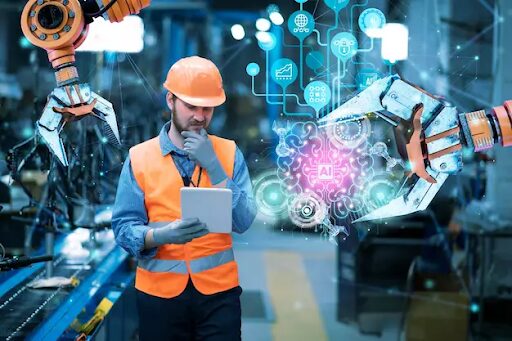AI has shown its impact in almost every industry, and construction is one of those. From smart tools that help plan projects to software that improves safety, AI construction tools are making things faster, easier, and more accurate.
It is opening doors to make construction work more effective than ever. The future of AI in construction is already unfolding and making a real difference on job sites every day.
Let’s discuss how AI is changing the future of construction.
What is the Need for AI construction tools?
Artificial intelligence in construction refers to smart software and tools that help with planning, estimating, safety, and building. It’s about replacing manual guesswork with data‑driven decisions to make projects faster and more accurate.
The construction industry uses AI-powered machines and technologies that can automate repetitive tasks. AI in construction helps from the first plans all the way to fixing things after the building is done.
Using AI construction tools brings real results such as:
- Better budgeting and estimating – AI construction estimating software cuts down mistakes in cost estimates by spotting trends in past work.
- Safer job sites – AI can monitor worker behavior and predict hazards before they become serious.
- Smarter scheduling – AI tools forecast delays, resource needs, and material counts so you always know what you need.
How is AI used in the construction industry?
Let’s walk through what AI is doing on‑site and off‑site. These are real, practical tasks that AI is making easier and smarter every day.
Pre‑construction and Design
AI helps with smart planning.
- Generative design tools suggest layout options that save materials and time.
- Tools powered by AI catch design clashes or mismatches early.
Cost Estimation
One of the trickiest parts of construction is figuring out exactly how much material you need and what everything will cost. This is where AI construction estimating software comes into play.
- AI construction software, like modern estimating platforms, extracts quantities from blueprints automatically and cuts manual work.
- Some platforms even automate the entire estimating process to help teams bid faster and more accurately.
Easier Communication and Getting More Contracts
Clear communication is critical on any job site, and AI makes it easier.
- With the help of AI tools, field observations are transformed into clean and professional reports that reduce miscommunication within teams.
- Regarding new contracts, AI can assist in crafting intelligent, data-driven proposals by reading job descriptions. AI can create custom content, which will eliminate the guesswork and maximize your chances of winning bids.
Invoicing and Payments
AI also simplifies back-office tasks like billing and payments.
- AI tools automate invoice generation based on real-time project progress and tracked labor or materials.
- They maintain accuracy by comparing the purchase orders and delivery records and highlighting discrepancies.
- The schedules of payments are also simplified, which minimizes delays and enhances cash flow to contractors and subcontractors.
What is the future of AI in construction?
The future of artificial intelligence in the construction industry is not just exciting, it’s full of possibilities that could completely change how buildings are planned, built, and managed.
Right now, we’re just getting started. As AI technology continues to grow, we can expect tools that are even faster, smarter, and more helpful on and off the job site.
We can expect:
- AI tools that design building layouts much faster and accurately
- Robots that handle dangerous jobs
- Fully automated construction sites
AI is still growing, and the future of AI in construction companies is full of potential. AI construction tools are changing how design, estimating, safety, and execution happen. It’s not just a slow change anymore; it’s speeding up and shaping the future quickly.
Also, you can expect better collaboration between AI systems and humans. The goal isn’t to replace people, it’s to help them work smarter and safer.
Challenges to Keep in Mind When Using AI in Construction
Not everything is perfect yet. Here’s what matters when adopting AI.
- Data Quality
AI only works well if it gets good data. Bad or incomplete data can cause mistakes and slow things down. Making sure data is accurate and connected is super important.
- Privacy
Tracking worker movement and behavior raises privacy concerns. It’s important to respect privacy by getting clear permission and keeping personal information anonymous whenever possible.
- Adoption and Learning
Using AI tools isn’t always easy at first. Teams need training and time to get comfortable, and the tools have to fit smoothly into daily routines.
Conclusion
AI is changing the way we plan, build, and manage construction, and it’s doing it in many helpful ways. From quicker estimates to safer job sites, artificial intelligence in the construction industry is already making daily tasks easier.
But is AI going to take over construction? No, the goal isn’t to take away jobs; it’s to make the work smoother, smarter, and less stressful. The good news? You don’t have to know everything today. Start small, stay curious, and keep learning. The future of AI in the construction industry is full of potential, and it’s already taking shape. It’s a future worth paying attention to.



